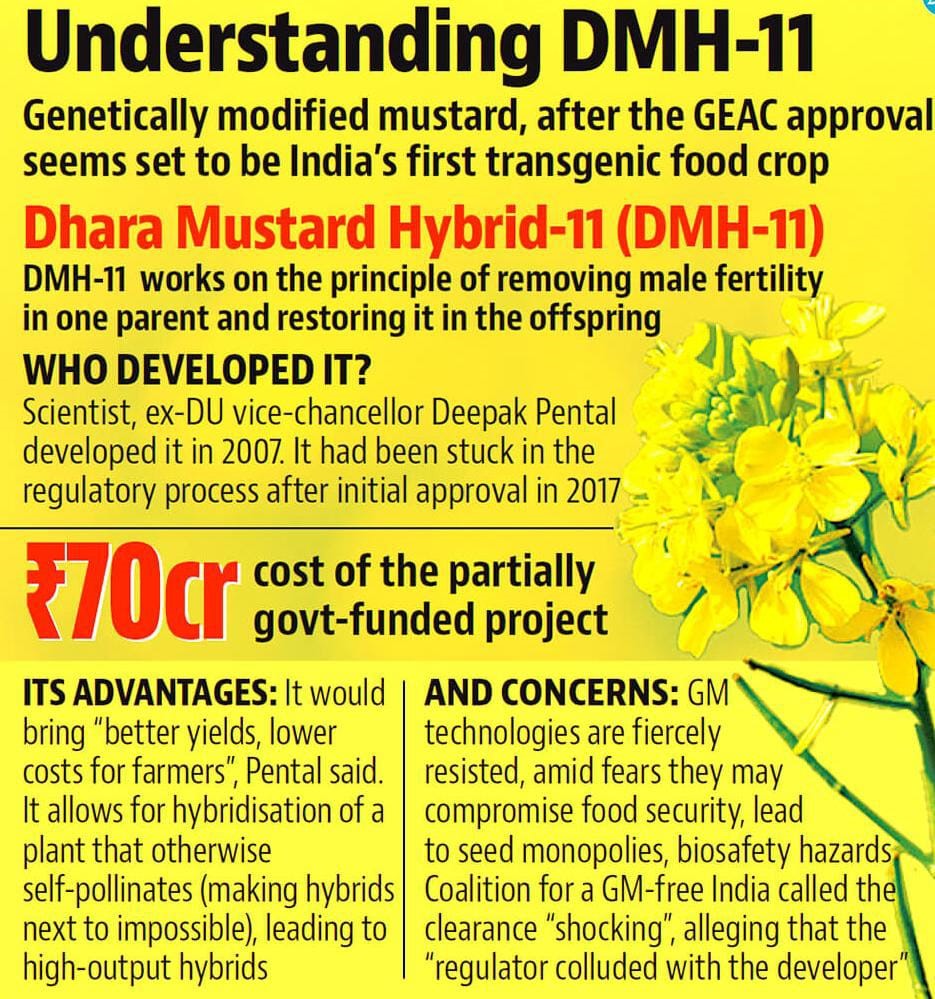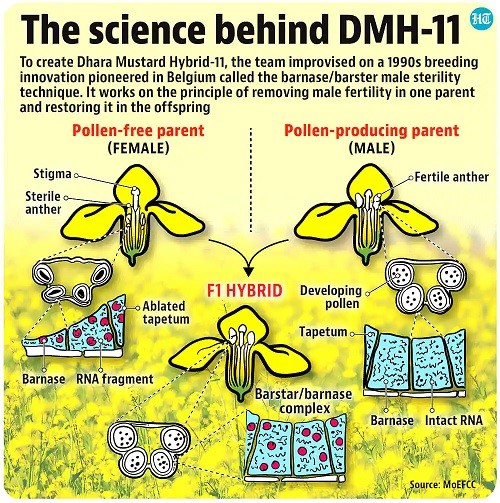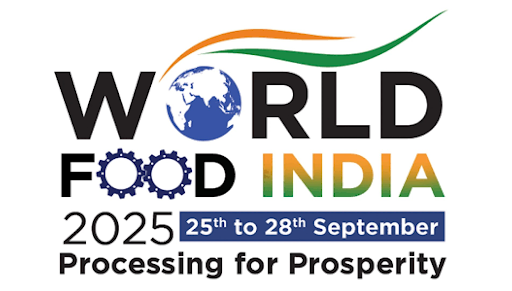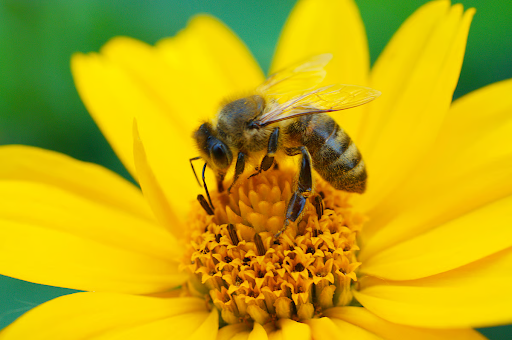





Disclaimer: Copyright infringement not intended.
In News


Field Trials and Opposition
Need for GM Mustard and Controversy
Impact on Honey Production and Export
Concerns Raised by Scientists
Need for Long-term Safety and Profitability Studies
READ GM CROPS: https://www.iasgyan.in/daily-current-affairs/gm-crops-40#:~:text=GM%20food%20involves%20the%20editing,resistant%20to%20a%20particular%20disease.
https://www.iasgyan.in/daily-current-affairs/gm-crops
Status of Transgenic Crops in India
Regulation Process for Transgenic Crops
Rejection by Gujarat, Maharashtra, and Telangana
Changes in Regulation Process
|
Genetic Engineering Appraisal Committee (GEAC) The Genetic Engineering Appraisal Committee (GEAC) is the apex regulatory body in India that evaluates proposals relating to the release of genetically engineered organisms (GMOs) into the environment. Establishment: Established under the Ministry of Environment, Forest and Climate Change (MoEFCC), the GEAC was formed in 1989 under the Environment (Protection) Act, 1986. Role and Functions:
Approval Process: Applicants seeking approval for the release of GMOs submit detailed proposals to the GEAC, which then evaluates the proposals based on scientific evidence and regulatory guidelines. Indian Council of Agricultural Research (ICAR) Introduction: The Indian Council of Agricultural Research (ICAR) is an autonomous body under the Department of Agricultural Research and Education (DARE), Ministry of Agriculture and Farmers Welfare, Government of India. It is responsible for coordinating agricultural education and research in the country. Establishment: ICAR was established on July 16, 1929, as a registered society under the Societies Registration Act, 1860. Mandate: The primary mandate of ICAR is to:
Structure: ICAR is headquartered in New Delhi and operates through a network of institutes, national research centers, agricultural universities, and Krishi Vigyan Kendras (KVKs) across the country. |
|
PRACTICE QUESTION Q. Describe the current status and regulatory framework of transgenic crops in India. Highlight the key challenges and controversies surrounding their cultivation and adoption. Propose measures to address these issues and ensure the safe and sustainable use of transgenic crops in the country. |




© 2025 iasgyan. All right reserved